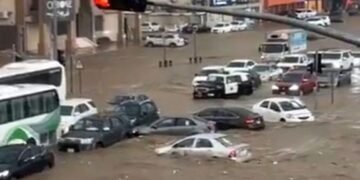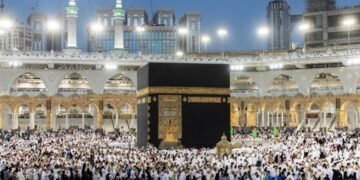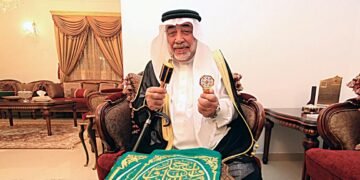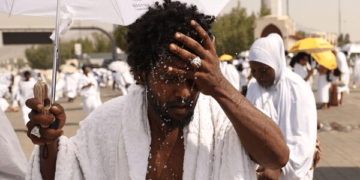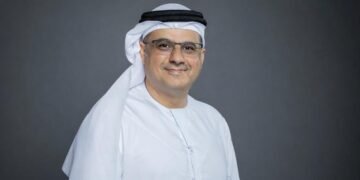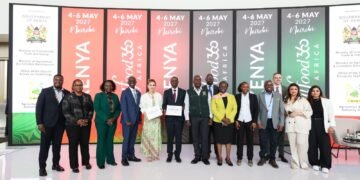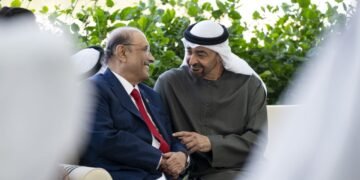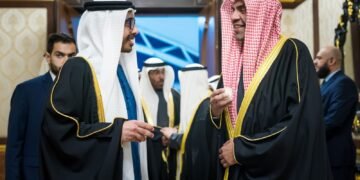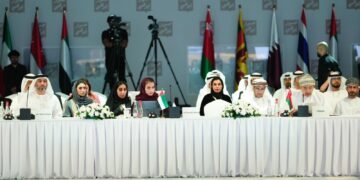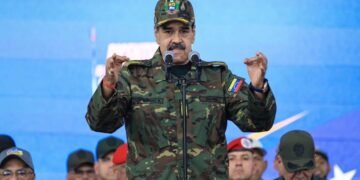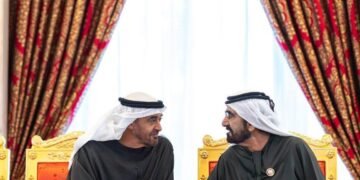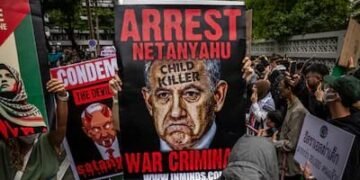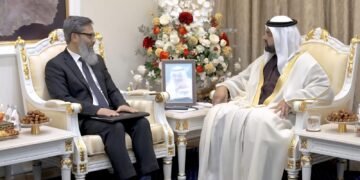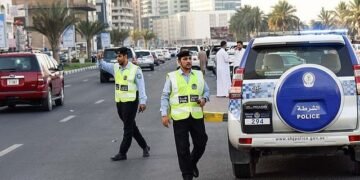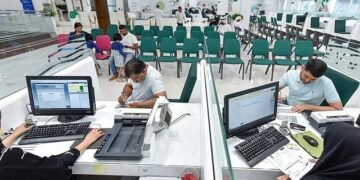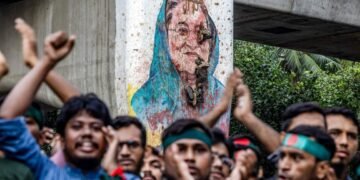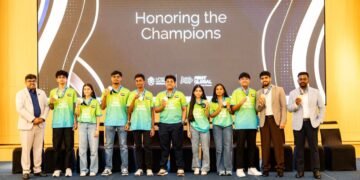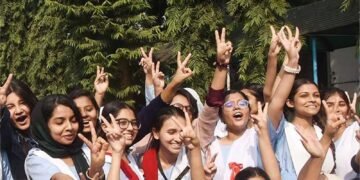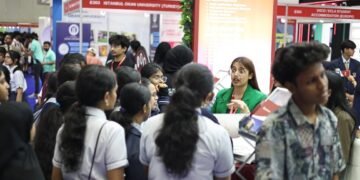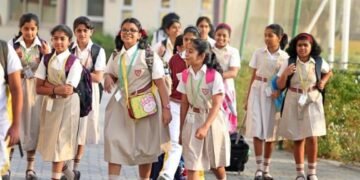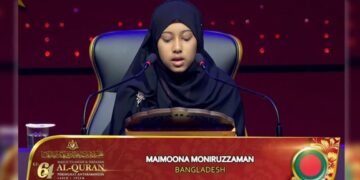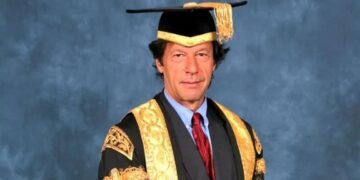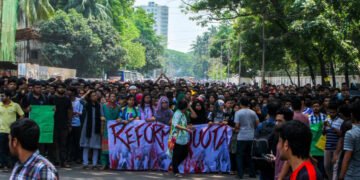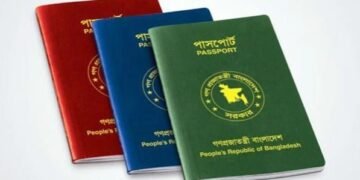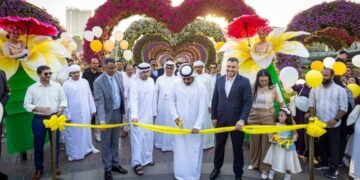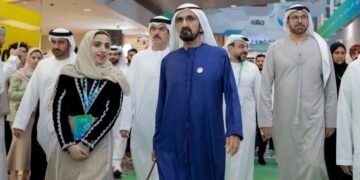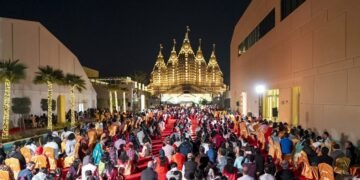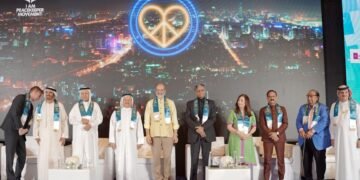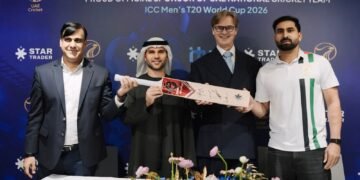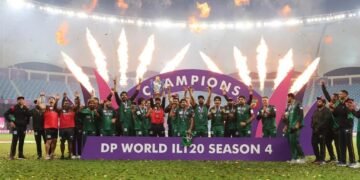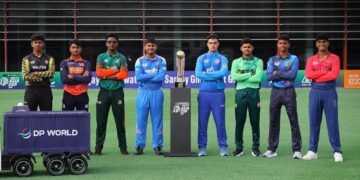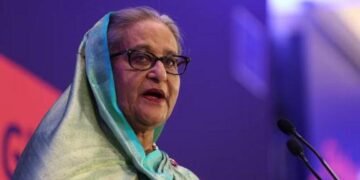Kim is continuing his tour of eastern Russia after his summit with Putin at the Vostochny Cosmodrome.
Russian President Vladimir Putin has accepted an invitation from Kim Jong Un to visit North Korea after the two leaders held their first face-to-face summit in four years.
Kim is in Russia’s far east as Putin looks to reinforce alliances amid Russia’s ongoing war in Ukraine, and as the North Korean leader continues to advance his country’s military modernisation.
He extended the invitation to Putin at “a convenient time” at a reception to mark the end of a day where the two held more than four hours of talks and toured the Vostochny Cosmodrome space centre.
“Putin accepted the invitation with pleasure and reaffirmed his will to invariably carry forward the history and tradition of the Russia-DPRK friendship,” North Korean state news agency KCNA said on Thursday, using the acronym for the country’s official name.
The talks in Russia have raised concern in the United States and elsewhere that Kim might be prepared to sell arms to Moscow for its war in Ukraine, perhaps in exchange for technology that would further his military ambitions.
The North Korean leader is also expected to visit an aircraft factory and travel to Vladivostok where he will view Russia’s Pacific fleet. Kim’s delegation includes his defence minister, his top military commander and the director of the country’s munitions department.
Leif-Eric Easley, professor of international studies at Ewha Womans University in Seoul, said the members of Kim’s delegation, as well as the location for the summit, were “quite telling” even though no joint statement was issued.
“The composition of Kim’s delegation suggests North Korea may send munitions to Russia in exchange for military technology. Meeting at Russia’s eastern spaceport was equivalent to Putin thumbing his nose at UN Security Council Resolutions,” Easley said in emailed comments. “This should be a wake-up call to all other UN member states about the need to redouble efforts at enforcing sanctions on Pyongyang.”
In its report, KCNA said the two leaders agreed to further strengthen strategic and tactical cooperation in the face of the “military threats, provocations and tyranny of imperialists”.
Putin, meanwhile, praised the “strengthening of cooperation and friendship between our countries” and told reporters he saw “possibilities” for military cooperation with North Korea. Defence Minister Sergei Shoigu, who was a guest of honour at events to mark the 70th anniversary of the armistice that ended the fighting in the 1950-53 Korean War, in Pyongyang in July, was also involved in the talks.
Technology transfer
The Russian leader said earlier that Moscow could help Pyongyang build satellites – Kim has argued a spy satellite is crucial for North Korea’s weapons development but its two attempts this year to put one into orbit have both ended in failure.
Some analysts suggested North Korea might want to try using a Russian space launch vehicle for the satellite and work with Russia to build a more powerful piece of equipment.
“It’s possible that North Korea pushes to participate in the production process of the satellite, rather than just acquiring a finished product, to set up a natural transfer of technologies,” Yang Uk, a military expert at South Korea’s Asian Institute for Policy Studies, told the Associated Press news agency.
Just before Putin and Kim met, North Korea fired two short-range ballistic missiles, the latest in a series of launches in breach of United Nations sanctions that prohibit such activities.
US State Department spokesman Matthew Miller said it was “troubling” that Russia was talking about cooperation with North Korea on programs that potentially would violate UN Security Council resolutions.
South Korea’s unification minister, Kim Young-ho, who is in charge of relations with Pyongyang, expressed “deep concerns” over military cooperation and possible arms deals, saying the two countries were apparently continuing to pursue “some kind of” a military deal.
“We once again urge Russia and North Korea to halt illicit acts that cause their isolation and regression, and follow international rules including the Security Council resolutions,” the minister told reporters on Thursday.
Japan’s newly-appointed Foreign Minister Yoko Kamikawa also warned against “violations” of UN resolutions.
The resolutions – passed with Russian support – ban the development of technology that could be used in North Korea’s ballistic missile programs.
They also prohibit any scientific and technical cooperation with North Korea in nuclear science and technology, aerospace and aeronautical engineering and technology, or advanced manufacturing production techniques and methods.
Source: ALJAZEERA

